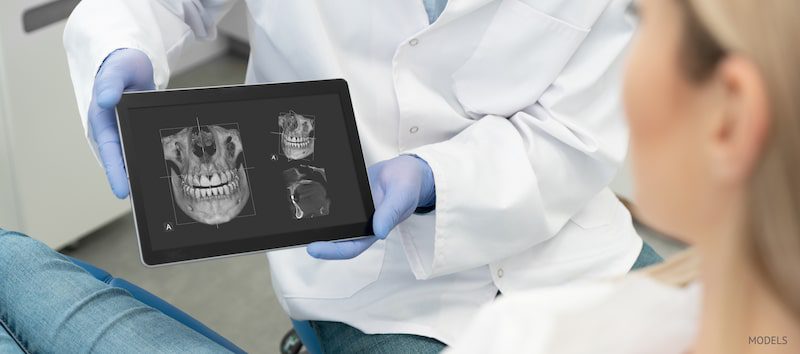Taking X-rays during your dental checkups is crucial to maintaining a healthy mouth.
Dental X-rays capture images of a patient’s teeth and gums, helping a dentist identify problems like tooth decay, bone loss, and impacted teeth. In so doing, a dentist can provide an accurate diagnosis and determine the best course of action when treating oral issues.
A major concern for a lot of patients is whether dental X-rays are really safe. Many worry that the X-ray equipment emits harmful radiation that could be detrimental to their health.
To learn more about this, let’s delve deeper into the topic and help you make better decisions regarding your treatment.

How Safe Are Dental X-Rays?
Dental X-rays are considered extremely safe. Even the ADA (American Dental Association) agrees that while X-rays do involve radiation, the levels are very low compared to both human-made and natural radiation sources.
Radiation transmitted during the dental radiology process is considered no different from radiations we are exposed to in daily living, e.g., when boarding an aircraft or in proximity to televisions and smoke detectors.
Ultimately, the benefits of having a dental X-ray performed outweigh the risks.
It is, however, important for the X-ray procedures to be conducted with adequate safety precautions in place, particularly for pregnant women and children. For instance, a lead apron can be provided to wear during the session to protect the body from most of the radiation.
How Are Dental X-Rays Beneficial?
Dental X-rays are necessary for identifying various issues in the teeth, gum, bone, and roots of your teeth. Without it, many problems, such as decay between the teeth, bone loss caused by gum disease, tumors or growths, and infections in teeth and gums, can go undetected, leading to worse problems down the road.
It is generally an effective way of highlighting an issue that can’t be spotted by an oral examination so that the appropriate action and treatment can be administered. These images are necessary for dental procedures, such as placing dental implants or porcelain veneers.
In children, a dental X-ray helps detect problems with teeth spacing, view root or bone-related tooth issues, and serve as a map if a child needs a tooth extraction or any other complicated procedure.
The bottom line is that a dental X-ray procedure will provide lots of meaningful information that will lead to long-term health benefits that far outweigh the risks of the procedure.
Interested in Learning More?
Your health and safety are of utmost concern to us. We provide excellent oral care for our patients and are always ready to equip you with all the information needed to make an informed decision regarding your dental health.
Contact us today at 310-273-0111 or fill our online form to schedule a consultation. We would love to hear from you.